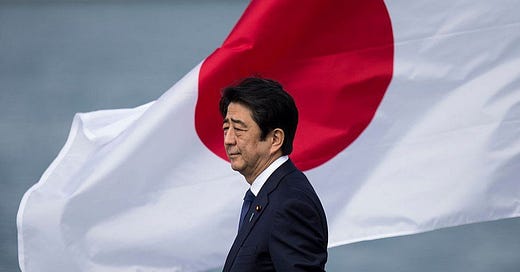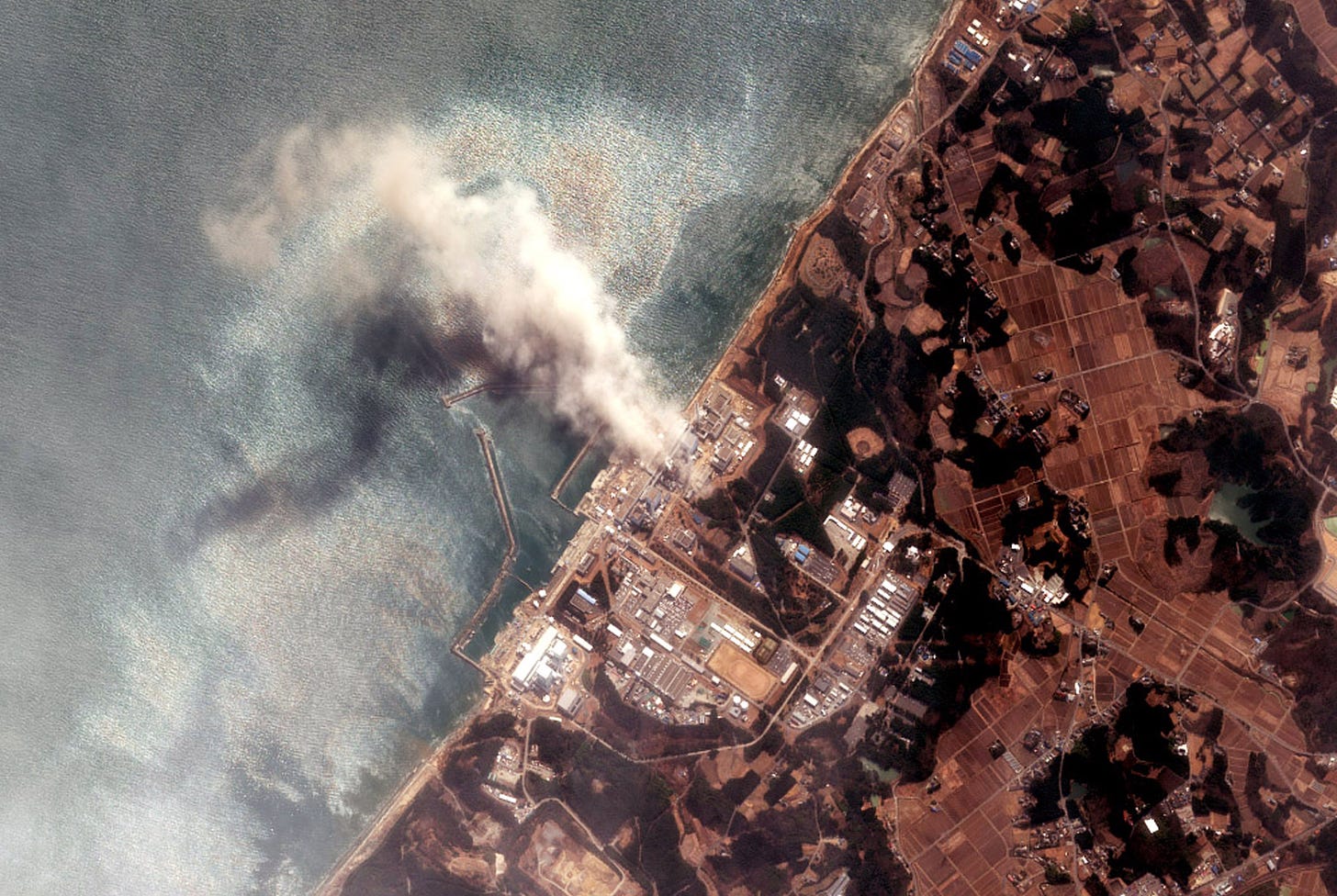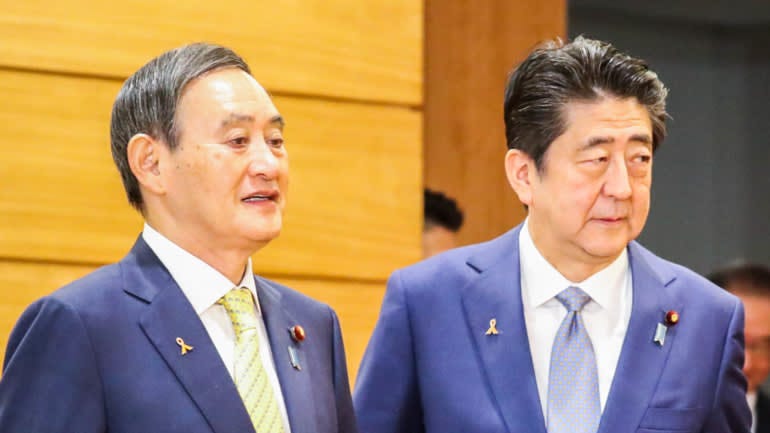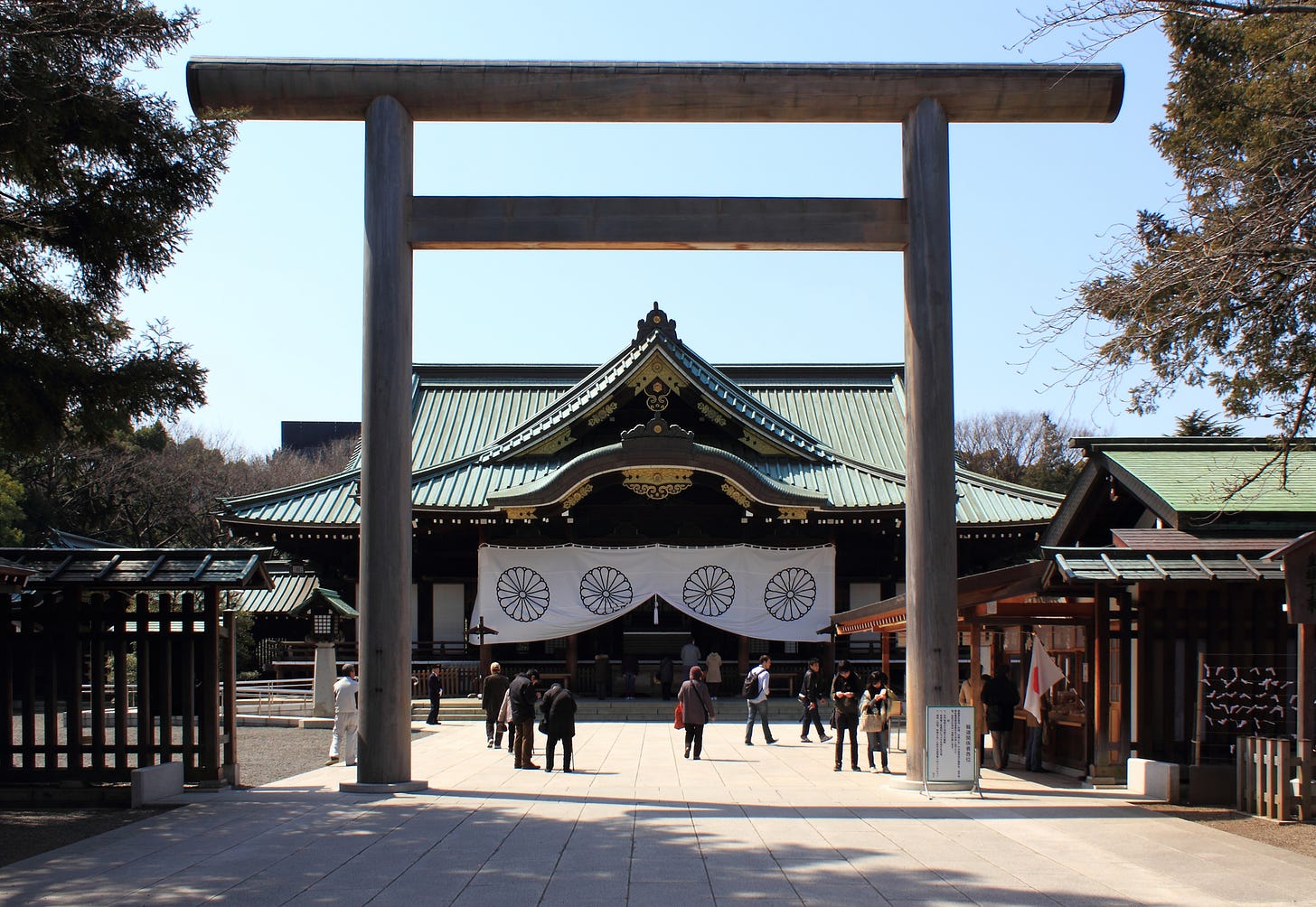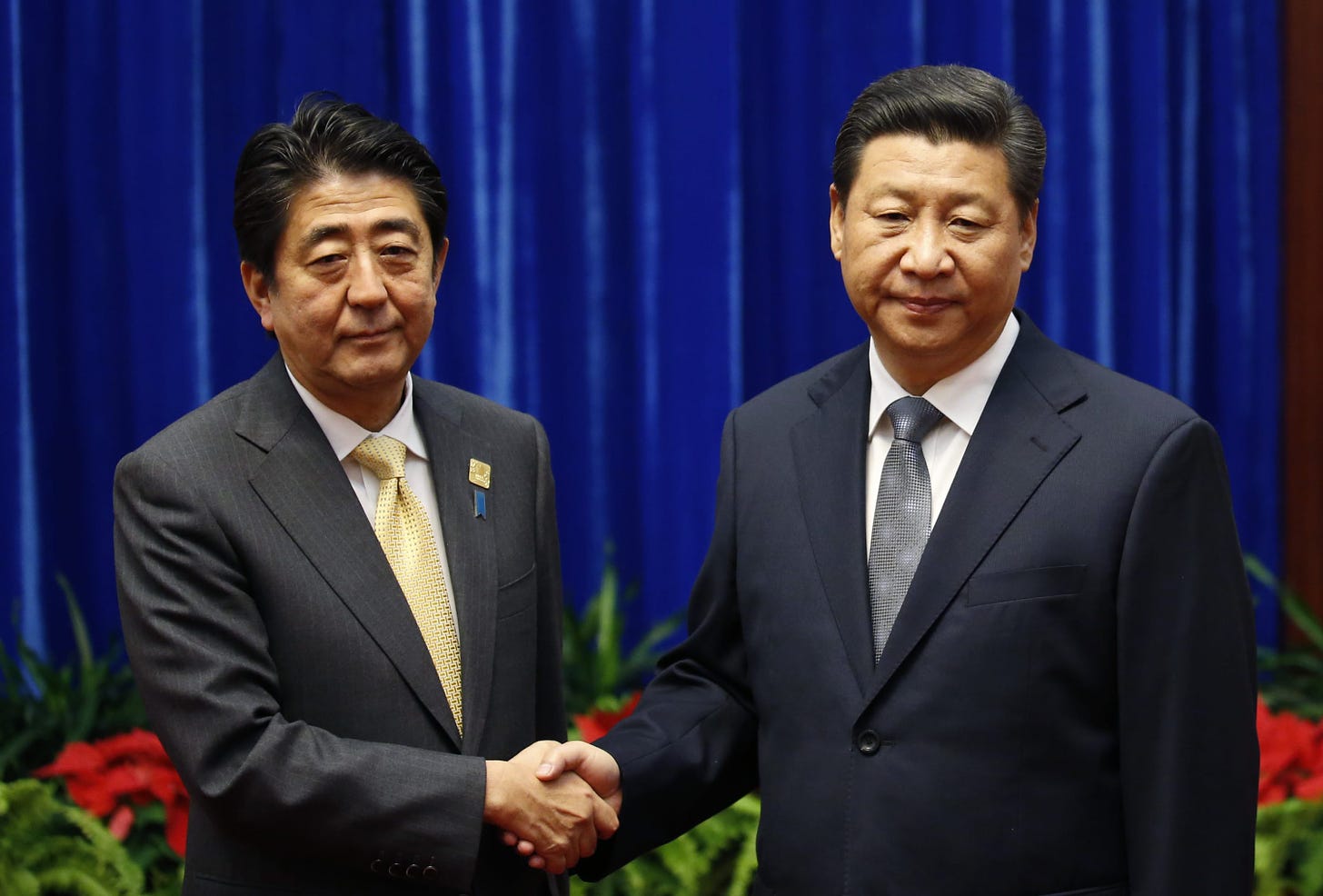How Shinzo Abe reshaped Japan
The legacy of Abe's vision of a strong Japan, his reforms and his rocky relations with neighbouring nations
With the shocking assassination of former Japanese prime minister Shinzo Abe on July 8, I wanted to share a transcript from an episode last year with Abe biographer Tobias Harris. When spoke about Abe’s legacy in July 2021, Abe had recently stepped down from power due to health issues that had followed him throughout his political career and which were worsened by the pressures of dealing with the pandemic.
In a New York Time article following Abe’s assassination, Harris describes his as having built Japan into a powerhouse through his embrace of Abenomics, an attempt to encourage the creation of high-growth sectors and tackle Japan’s dwindling workforce.
But his vision of a strong Japan was not without critics, both at home and in neighbouring countries such as South Korea, who have been angered over the years by his nationalistic vision, visits to Yasukuni Shrine and comments about comfort women.
Harris ends with this thought: “At the time of his death, it appeared that the Japanese people might finally be coming around to Mr. Abe’s vision. Thanks in part to Russia’s war in Ukraine, a robust majority appeared to support higher levels of military spending. After waging what was at times a lonely fight, Mr. Abe died just as the Japanese people were possibly coming to appreciate his vision of a strong state capable of defending the nation in a dangerous world.”
A political dynasty
Jordan Schneider: What was Abe’s upbringing like?
Tobias Harris: Abe is a third-generation politician and the grandson of one of the most important political figures of postwar Japan, Nobusuke Kishi. Kishi was one of the founders of the Liberal Democrat Party in 1955, which has been the dominant party in post-war Japanese politics.
When Abe was young his grandfather was prime minister and he grew up wanting to understand and emulate him.
His father Shintaro was also a major LDP politician in his own right but there was a certain tension between Abe and his father.
His father came from a generation of LDP politicians that weren’t particularly ideological. It was very much about maintaining power.
The LDP is a conservative party but at different points in time that has meant different things. For example, during the cold war, the party was divided between people who wanted Japan to be lightly armed and closely allied to the United States, and people like Abe's grandfather who thought the LDP should be a proponent of a much more strident, conservative, nationalist and remilitarized Japan that was allied to the US and anti-communist, but not subordinate to the US.
I think Abe looked at people like his father who came of age as the LDP was dominant during the cold war as having come to accept this idea of a lightly armed Japan. They weren’t pushing very hard for that to change.
But Abe did not like the compromises they made. He thought they too easily accepted a consensus that left Japan as a subordinate partner to the US.
Jordan Schneider: Abe is his father’s secretary for a while but then his father dies in 1991. How does this pave the way for Abe’s rise to prominence?
Tobias Harris: His father had been very close to becoming prime minister himself and then died young. Abe inherits these expectations, his father's reputation, his father's clout, and his father's friends and patrons. He enters politics in 1993 with all those expectations.
But he also enters politics at a moment where all the certainties of the Cold War era and Japanese politics ended. The economic bubble burst and the idea of Japan as this great economic model shatters almost instantly. The LDP loses power for the first time just as he enters politics.
All of a sudden you have these new opportunities to question the way things had been in the decades leading up to 1993. There's just more space for debating. I think what Abe sees is a country whose confidence is shattered by the bursting of the bubble and thinks it is time for Japan to rediscover its national strength.
He felt Japan shouldn't be embarrassed about its past. It should be a great power again and not apologize for its history anymore.
I enjoy putting ChinaTalk together. I hope you find it interesting and am delighted that it goes out free to eight thousand readers.
But, assembling all this material takes a lot of work, and I pay my contributors and editor. Right now, less than 1% of its readers support ChinaTalk financially.
If you appreciate the content, please consider signing up for a paying subscription. You will be supporting the mission of bringing forward analysis driven by Chinese-language sources and elevating the next generation of analysts, all the while earning some priceless karma and access to an ad-free feed!
Abe, abductees and North Korea
Jordan Schneider: Abe gets his big break by starting to make hay of nationalist causes, in particular the DPRK's abduction of Japanese people. Can you explain what this was?
Tobias Harris: The abductee issue was the perfect issue for Abe to make this case. During the seventies and eighties, North Korea abducted Japanese citizens from beaches, from the streets of Japanese cities, and from Europe for various reasons including using them as language instructors. But it was treated as this wild conspiracy and no one talked about it.
For people like Abe, this was exactly what was wrong with post-war Japan. A foreign country was taking Japanese citizens and the Japanese state did nothing.
As more evidence came out, their argument got a lot of hearing because it seemed that the evidence was irrefutable that this had actually happened. Abe was brought into government for the first time in 2000 as a deputy chief cabinet secretary. He was still a relatively junior politician at that point, but it did mean that he was part of the discussions around normalization with North Korea in 2002. It allowed him to make the case for a hard line on the abductee issue.
Finally, the North Koreans admitted it and that really helped cement Abe as a national figure.
Abe’s first premiership and the wilderness years
Jordan Schneider: Let's bring this up to his first prime ministership. How did it go so horribly wrong?
Tobias Harris: Abe became a major national figure vindicated for his work on the abductee issue.
Then-prime minister Junichiro Koizumi was preparing to leave office in 2006. He was trying to decide who should lead his party heading into elections and he views Abe as someone who can be useful to him. He makes Abe the LDP secretary-general, which is the number two in the party.
Abe becomes almost inevitable as the successor. He's a popular figure at this point. Was 52, he would be the youngest post-war prime minister and the first prime minister born after the war.
There was this great consensus that Japan had to have this generational change and that Abe was the guy to do it. But, as Abe admitted after the fact, he wasn't ready for it and allowed himself to get swept up in the enthusiasm.
It really showed once he took over. He was also surrounded by a number of other younger, inexperienced people who didn't quite know what they were supposed to be doing.
The following year, he has a health crisis and steps down. Then we have these years in the wilderness where all of a sudden he has to figure out his life.
Jordan Schneider: Whatever you think of Abe, the story of how he picked himself up from a professional humiliation and reinvented himself is fascinating. Because he isn’t done yet and will return to office. How does he pull this off?
Tobias Harris: His reinvention was the political consequence of the triple disasters of 2011. There’s this moment where you have an earthquake, a tsunami, and a nuclear disaster. The reconstruction of the Tohuku region [where Fukushima is located] was going to require an enormous amount of money. How it was going to be paid for was a very live issue.
At that moment the Democratic Party of Japan is in charge of the country and the LDP is desperate to find a way back into power. Abe is also desperate to find a way back into relevance.
Weeks after the disasters, Abe connected with an LDP politician named Kozo Yamamoto, who was a hardcore reflationist. He was a former finance ministry bureaucrat but he hated the finance ministry and its interest in balanced budgets and tax hikes. He believed that the only way out of Japan's long-term stagnation was a coordinated fiscal monetary stimulus and that the Bank of Japan and the finance ministry had to work together to open the floodgates to let the money flow through the system.
Yamamoto was afraid that after this disaster the finance ministry would push for a tax hike to pay for reconstruction. He wanted to form a study group that would advocate for unlimited quantitative easing to finance the reconstruction of Tohuku.
Abe was looking for a way back into political prominence and this was just a marriage of convenience. Yamamoto thought having Abe attached to the group would be a lightning rod and get a lot of attention.
Jordan Schneider: What was it about Abe that allowed him to stay in the spotlight even after such a dramatic fall?
Tobias: Abe reentered active politics in 2008. He was basically the leader of the LDP's right-wing. Also at that time, he had a column in an evening daily tabloid. So he had a big platform,
But to ever have another shot to run for the premiership, he knew he had to be a more complete politician. He had to round out his image. He couldn't just be Abe the defense Hawk. He had to have the economic policy chops that he just did not have the first time around. Yamamoto basically set up tutoring sessions for him with these advocates of reflation.
The column that Abe was writing at first was all about how bad the Democratic Party was, that they were incompetent and caving to China. But then frequently he began writing about these monetary policy topics and married them to his vision of a strong Japan.
Jordan Schneider: Yoshihide Suga also makes his appearance. He seems almost like a backroom dealer that knows his way around all the ministries. What was his role in getting Abe back on track?
Suga has been widely written about. In some ways, he is the opposite of Abe. Abe was a hereditary politician from Tokyo. Suga’s father was a farmer and he came from Northern Japan.
Yet Suga finds himself drawn to Abe’s orbit. He was a member of Abe's first cabinet when he was prime minister in 2006 and 2007. When Abe resigns, Suga pledges that he's going to help Abe get back into power and stays close to Abe during the wilderness years.
In 2012, the LDP is approaching another leadership election. It looks like the LDP is on its way back into power. Suga told Abe this was his shot, and he was right. Abe won a comeback victory, won the LDP's leadership election, and then became prime minister.
Returning to power and reforming the state
Jordan Schneider: So once back in power, he brought in a lot of reforms intending to address issues that had been festering in Japan for some time. Let’s start by talking about the bureaucracy.
Tobias Harris: This had been the holy grail for a long time. How do you make bureaucrats more answerable to politicians? There had been attempts to create essentially a centralized personal bureau for a long time but none of them had succeeded because each ministry controlled its personnel choices and essentially had more power than the prime minister did.
Even before there was reform, Suga called the top officials from all the ministries into his office and said he wanted to know every personnel and senior promotion decision that they were making. Immediately there was a wake-up call that if you want to get ahead in your ministry, you had better be on your best behavior and do things that please the political masters of the moment.
That power was then institutionalized in 2014, with the creation of a cabinet personnel bureau that formally gave the prime minister's office the ability to pick the highest 500-600 officials in government.
Jordan Schneider: Let's talk a little about demographics, Japan is famously not a particularly friendly place for foreigners. What were the politics around letting more foreigners into the country?
Tobias Harris: There were three things. Firstly they recognized that if Japan was going to have fewer workers to maintain Japan's standard of living, it needed to produce more per worker.
That meant gifting resources into higher value-added sectors, allowing more entrepreneurial activity, and finding the low-hanging fruit to improve the efficiency and productivity of each worker. That involved lots of different things: agricultural reform, trying to create a venture capital culture, and finding ways to encourage entrepreneurs. Some policies worked better than others.
Another piece was trying to find ways to at least slow the decline of Japan's workforce, finding ways to encourage retirees to reenter the workforce in productive ways. It was also about how to keep more women in the workforce.
Finally, part of that was foreign workers and building on existing guest worker programs. They were already rife with abuse and needed a lot of work, a lot more oversight, and a lot more attention paid to it.
Even as they were trying to reform it, more abuses came to light. But they did expand it and then also created a whole new entry visa for migrant workers.
Jordan Schneider: I remember bumming around Fukuoka in February of 2020 unsure whether I was gonna go back to China or not, and being surprised that there were service workers who were much more comfortable in Chinese than they were in English.
Tobias Harris: If you go into a convenience store in the Tokyo area, it's likely the person on the other side of the counter is not Japanese. People come from all over, Bangladesh, Southeast Asia... But the largest share is Chinese.
But there were also a lot of reassurances to Abe's conservative base that they were not opening the door to Japan becoming a multicultural society.
Reckoning with imperial history
Jordan Schneider: Let's turn to foreign policy. Korea-Japan relations were really puzzling to me during the Abe arc. What were the factors that led to such a tense relationship?
Tobias Harris: I think a lot of South Koreans looked at Abe, what you could call his revisionist remarks on history, and a series of poorly considered remarks about comfort women and concluded they didn’t trust him very much.
In December 2013, there was a moment when a number of people inside and outside the Obama administration are telling Abe not to go to the Yasukuni Shrine. They say it’s going to make their life more difficult, and that it’s doing China’s work for it and is going to be a major propaganda victory for China. The US wants Japan to get along with South Korea.
So, on December 26, Abe goes and worships at Yasukuni.
Jordan Schneider: You’ve got to love it when Asian politicians pull some shit between Christmas and New Year. It's a tradition at this point.
Tobias Harris: Of course, the Chinese and South Korean governments react in predictable ways.
Japan and South Korea’s relationship was complicated by the fact that you had President Park come in. In theory, you would think a Korean conservative would be more friendly to Japan but I think she was constrained by the fact that her father had served in the Imperial military during the war. She had to avoid the impression of being overly solicitous of Japan.
But the Obama administration was very invested in getting Japan and South Korea to work more closely together, and Abe and Park did eventually meet.
At the end of 2015, something I thought at the time was a very significant agreement, Abe did apologize for Japan's treatment of the comfort women and offered compensation in a personal apology. The Park government accepted that, and part of the agreement was that this would mean that the book would be closed on the issue.
Then-President Park is impeached and South Korea transitions to the Moon administration. One of the first things that Moon does is announces that they're going to look into how that agreement was reached. They vacate the agreement.
Jordan Schneider: How does this compare with Japan’s dealing with the legacy of WW2 when it comes to places like Australia and the US?
Tobias Harris: In 2014, Abe went to Canberra and gave a speech at the Australian parliament. Then he goes to Washington in 2015 and speaks to the joint session of Congress. His themes are about historical reconciliation and talking with remorse about Japan's past.
Abe meets with American POWs and tries to express his remorse for their treatment at the hands of the Imperial Japanese military.
You get this kind of process with Australia and with the United States, but not with South Korea. It would've been nice to see the same thing happen. Part of that is that I don't think the South Koreans would be satisfied, but you did not see that effort.
China-Japan relations under Abe
Jordan Schneider: Let's do Japan-China relations from 2013 to pre-pandemic.
Tobias Harris: When Abe is engineering his comeback, it’s not just about reflation and economic stagnation. It was also very much about the Democratic Party of Japan, which was in power, getting pushed around by China and not standing up for Japan. Japan needed a leader who was going to stand up to China, be firm, and not cave.
There were incidents between the two countries: the collision between a coast guard vessel and a Chinese fishing boat in 2010, and China's response to Japan's nationalization of the Senkaku/Diaoyu islands in 2012. Abe thought all of that showed that they couldn't trust the Democratic Party of Japan in power. The LDP needed to come back and needed a leader like him who would stand up for Japan and build up Japan's military.
That meant deterrence in the East China Sea. It meant going to the US and seeking reassurance from the Obama administration that the security treaty applied to the islands.
Abe spent the first several years doing that and ratching up the rhetoric. Things were very tense between Japan and China.
In 2014, Abe went to Davos and says that this is reminiscent of the arms races between Britain and Germany before WW1 and gets everyone worked up. There was this bizarre war of words between the Japanese and Chinese ambassadors in the UK where China calls Japan Voldemort and the Yasukuni Shrine a Horcrux.
There wasn’t a lot of communication. There’s a famous picture of Abe and Xi meeting for the first time and they're not even looking at each other.
In early 2017, the wind shifted. I think some of this is a response to anxieties about what the Trump administration would mean for the global trading order.
It was really on that basis that they started drawing together and, cautiously, ushered in the beginnings of discussions. Abe and Xi have another meeting that goes a lot better than some of the earlier ones. The pillar of this is economic cooperation. I think it was a commitment to compartmentalize some of the security concerns. There are some gestures toward a hotline and confidence-building measures so that they don't have to worry as much about an accident or a collision that results in some sort of conflict.
Abe resigns for the second time
Jordan Schneider: Bring us up to the present date [July 2021]. What’s the current state of play in Japanese domestic politics?
Tobias Harris: Abe announced his resignation in August of last year. He resigned in 2007 after a severe attack of ulcerative colitis, which he's dealt with for most of his life, and part of his comeback in 2012 was showing that his health had recovered. He had a new drug that he was on and a new exercise and stress management regime.
Throughout his tenure, he maintained that, but then when the pandemic hit, I think the hours he was working made it impossible. His approval ratings fell sharply during the pandemic because his government struggled to manage it. By August he had made several trips to the hospital and speculation was growing about what was going on with him.
Suga was named the new prime minister in short order but only had until September left in the term. There are real questions about whether the LDP wants to contest an election with Suga as its leader. There has been speculation recently that Abe is feeling good again and he's on a new drug for his condition.
Part of what that reflects is a leadership vacuum in the LDP. And particularly within Abe's faction, which is the LDP's largest. If there were obvious successors, there'd be no question that I think Suga could hand the reins to someone else.
The problem is that person doesn't exist. Every plausible contender either has a lot of enemies within the party or other shortcomings that make it hard for them to unite the party behind their candidacy. It's possible that Abe could find himself back in power because the party just can't agree to anyone else.
If he wants it then no one is going to be able to stop him.
Editor’s Note: The Japanese general elections were held at the end of October 2021. Suga stepped down as party leader due to poor approval ratings and former minister for foreign affairs Fumio Kishida ran as the candidate for the LDP. Despite losing 25 seats, the LDP gained a majority and Kishida is the current prime minister of Japan.
Have thoughts, comments or ideas you want to share about this week’s ChinaTalk? Leave your feedback in the comments!
Thanks for reading,
Jordan

